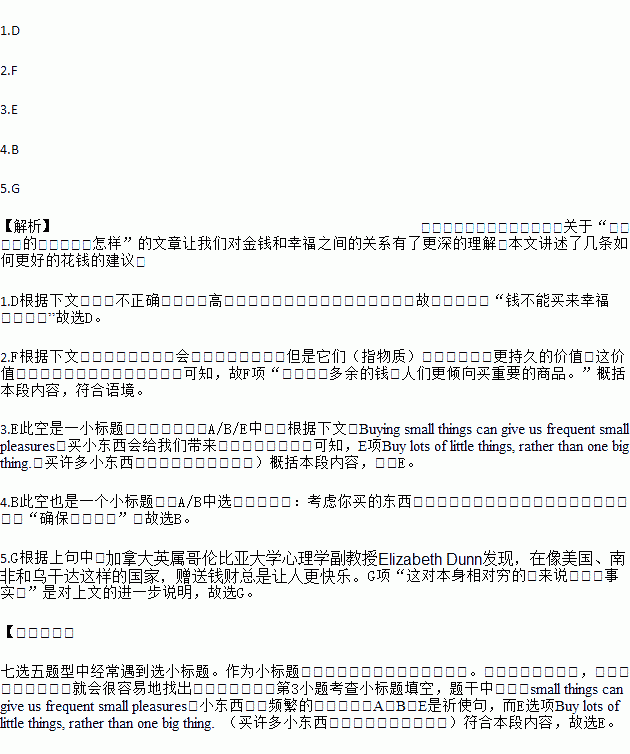题目内容
根据短文内容,从短文后的选项中选出能填入空白处的最佳选项,选项中有两项为多余选项。
A new article in The Wall Street Journal has given us a deeper understanding of the relationship between what we earn and how we feel.1.Well, not true. People with higher incomes are happier than those who struggle to get by. To put a smile on your face with your money, you need to spend it strategically. Here are some ways to better spend your bank notes.
Buy experiences, not material things.
2.People think that experiences are only going to provide temporary happiness, but they actually provide both more happiness and more lasting value that help you better manage your life.
3.
Anything you buy, including a product you think is special will become just another object. Buying small things can give us frequent small pleasures that are different each time they occur, as they forestall(抢先)adaptation.
4.
It’s also important to consider how what you’re buying will affect how you spend your time. For example, you may have to spend a very long time on the road if you get a big house in the suburb, which will totally lower overall life satisfaction.
Try giving it away.
Elizabeth Dunn, associate professor of psychology at the University of British Columbia in Canada, found that in countries as diverse as Canada, South Africa and Uganda, giving away money consistently made people happier.5.
A. Buy what you like.
B. Be sure to buy time, too.
C. More money, more smiles?
D. Money can’t buy happiness, right?
E. Buy lots of little things, rather than one big thing.
F. With no much money to spare, people tend to stick to material goods.
G. This was even true for people who were relatively poor themselves.
 名校课堂系列答案
名校课堂系列答案
